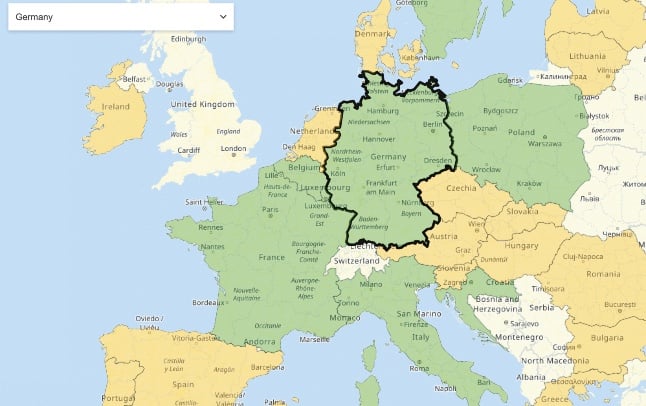The European Commission launched the website along with an app on Monday, to help tourists choose their holiday destination this summers as borders reopen across the territory.
The website is called “Re-open EU” and contains regularly updated information available in 24 languages.
Users may select their preferred language and country of destination on the website, click on “go!” and find an interactive map providing the latest information on key point for travellers, such as
- Is travel into the country for tourism purposes possible?
- Are non-essential (other than medicine and food) shops open?
- Are there any risk areas under lockdown in this country?
For example, in Italy (see below), the health situation is qualified as “green” by the EU at this point, which means that there are no areas in the country that are currently under lockdown.
READ ALSO:

Photo: Screenshot EU
In fact, the only EU country qualified as red at this point is France, which has been given the colour because its overseas territories Mayotte and French Guiana still follow some lockdown restrictions. In mainland France, however, the lockdown has been lifted.
When looking at travel restrictions, there are still several countries that have not completely eased their border controls yet (see picture below).
Details about what kind of border controls remain in place can be found for each country.

Photo: Screenshot EU



 Please whitelist us to continue reading.
Please whitelist us to continue reading.
Member comments